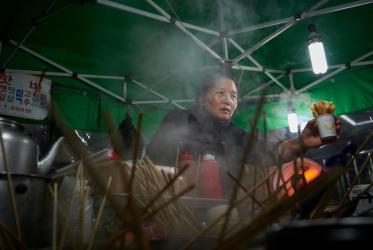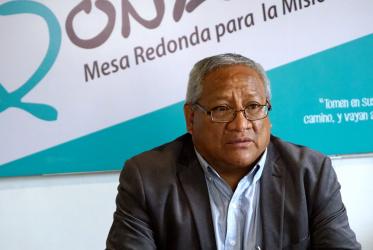Displaying 1 - 13 of 13
WCC well-represented in Religions for Peace leadership
07 October 2019
Dr Saïd Ailabouni: God is on the side of rejected, oppressed, occupied
12 September 2019
How can you help refugees?
11 October 2018
G20 summit: call to pray for peace in Hamburg
07 July 2017






